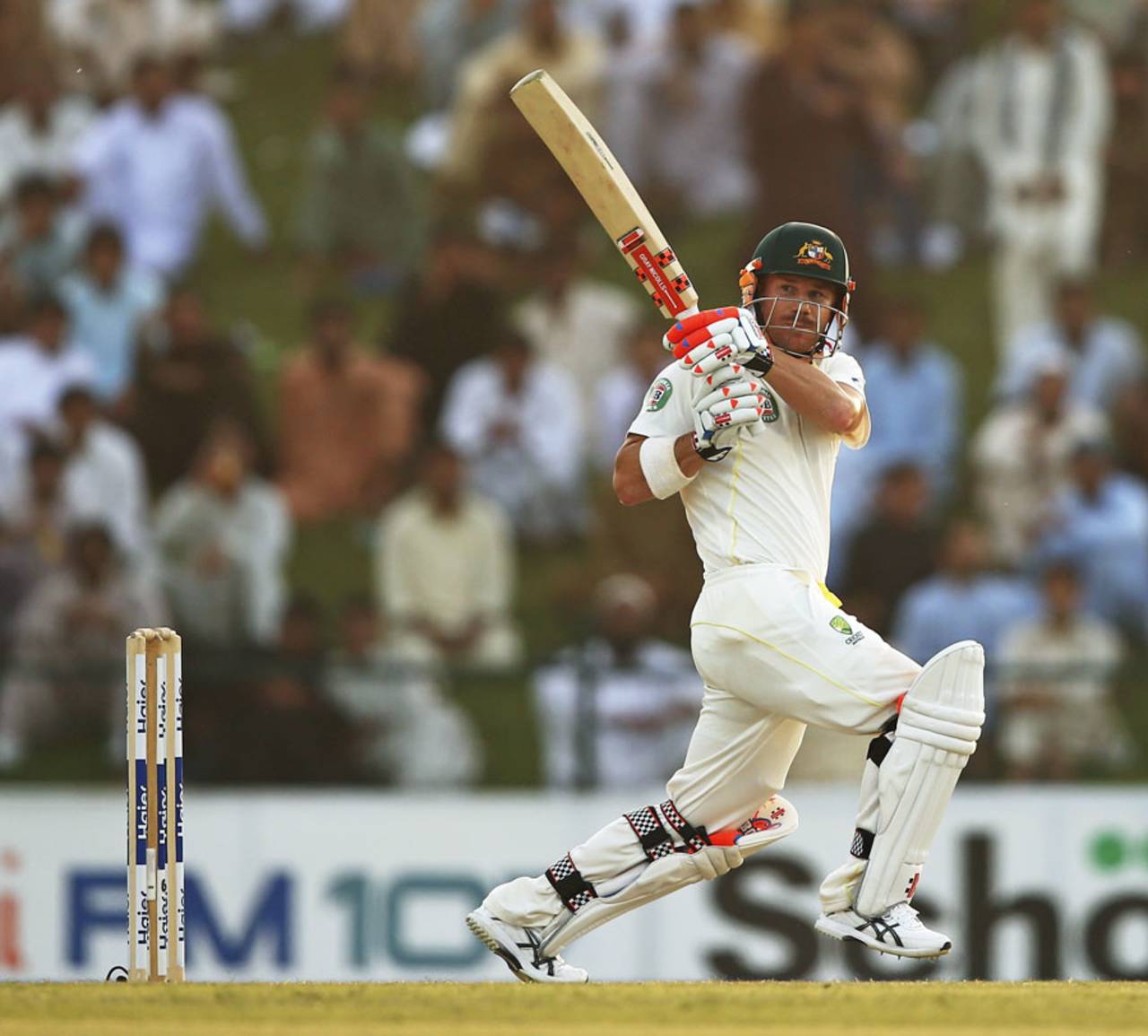On the fourth afternoon in Dubai, when a dejected
Michael Clarke fronted the media to explain his team's failures with bat and ball, he had nothing but kind words for
Younis Khan. A gentleman of the game, Clarke called him. He even said that he liked watching Younis bat, albeit not for quite so long against Australia. He saw plenty of Younis with bat in hand over the first two days in Abu Dhabi; now the time has come to see if his men have learnt from the experience.
Younis has spent more than 17 hours batting in this series. Break that down and it means he's averaged nearly a full day at the crease in each of his three innings. Pakistan have not won a Test series against Australia in 20 years and only the most optimistic Australian fan could believe, after Pakistan's innings, that a series defeat might still be avoided. It has truly been a team effort from Pakistan, but with no member a greater contributor than Younis.
By the time he lost his middle stump late on the second afternoon in Abu Dhabi, he had entered celebration mode. Dropped from the one-day side last month, Younis fell for 213 trying to deposit Peter Siddle onto the grassy hill beyond the midwicket boundary. He had earned some fun. His twin centuries put Pakistan in a winning position in Dubai, and his double-hundred did so again in Abu Dhabi.
Across both Tests, Younis toiled at the crease for 422 runs, more runs than Australia's top seven combined, albeit he has played one more innings. In Abu Dhabi he batted for 511 minutes; the last Australian to survive that long in a Test innings in Asia was Jason Gillespie during his
famous double-century in Bangladesh in 2006.
Australia's batsmen have shown time and again that they struggle to adapt to slow conditions. Victory in this Test might be all but out of the equation, but there is still the chance to bat with patience and sense, and show that they can adapt. None of them will play exactly like Younis, but they can learn from his discipline. Rarely did he go away from his plans. He was patient enough to wait for his opportunities, and skilful enough to capitalise when they arrived.
It was revealing that on a slow pitch where the ball did not come on to the bat, Younis sourced his runs from the fast men mostly off the back foot, and from the spinners mostly off the front foot. In his 349-ball stay at the crease, there were only four scoring shots behind square on the off side against the spinners. Instead he swept them or used his feet and hit them down the ground. If he played back, it was generally to defend with a straight bat.
Of his 213 runs, only 25 came in front of the wicket against Australia's fast bowlers, compared to 100 from the spinners. Until he had some late fun, he did not try to force pace that wasn't there, instead waiting for the ball to come to him off the fast bowlers. Often they operated with multiple catchers in places like short cover and short mid-off; Younis saw that and did not risk it.
He did not score a single run in front of square on the off side against Siddle. It is also worth noting that the fast bowlers did not encourage him to drive enough, especially given the catchers that were often in place. Too many balls were short of a length and not enough in that teasing fuller region that might have tempted him to drive on the up.
It was not a chanceless innings. He should have been caught by David Warner at gully on 112 when he pushed at a Mitchell Johnson ball angled across him, and Warner also missed a stumping when he was filling in for the injured Brad Haddin behind the stumps a few overs later. But, for the most part, Younis stuck to his plan. As it did in Dubai, it worked wonderfully.
Of course, Younis' plan suits his game and will not suit all the Australians. But they can take aspects of it into their own innings. When playing back to the spinners, play straight. Use your feet to get down the pitch to them. Be careful driving on the sluggish pitch. Mostly, be patient and wait for the scoring opportunities to come in your areas of strength.
It's about willpower, and won't-power. And Australia won't improve in such conditions unless they show a willingness to learn from the experts.
Brydon Coverdale is an assistant editor at ESPNcricinfo. @brydoncoverdale
